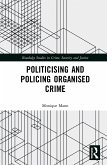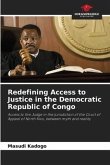This paper aims to analyze the state action throughout history in the face of the emergence and consolidation of criminal organizations - in which public agents are present - in the Brazilian territory. As the main example of the rise of these criminal groups in this research is the faction First Command of the Capital, which already has signed transnational agreements. Through the historical, bibliographical, inductive and deductive methods, the study was conducted based on books, scientific articles, documents, legislation, theses, dissertations and monographs. The research identified the gap left by the State inside prisons and in communities where they house people of low social class, allowing criminal organizations to gain strength in these places. It also found the need for the application of interdisciplinary public policies directed, specifically, to combat corruption within the state machine and the core of criminal organizations.
Bitte wählen Sie Ihr Anliegen aus.
Rechnungen
Retourenschein anfordern
Bestellstatus
Storno








